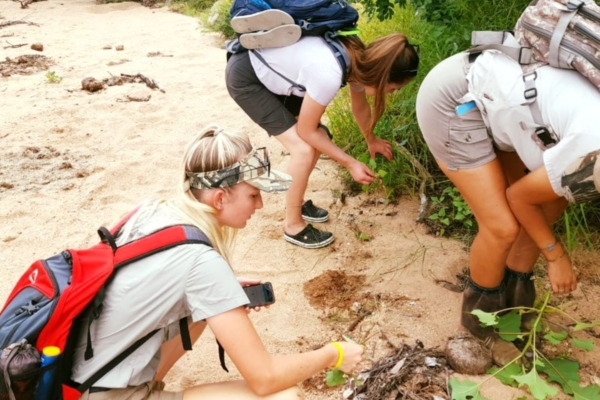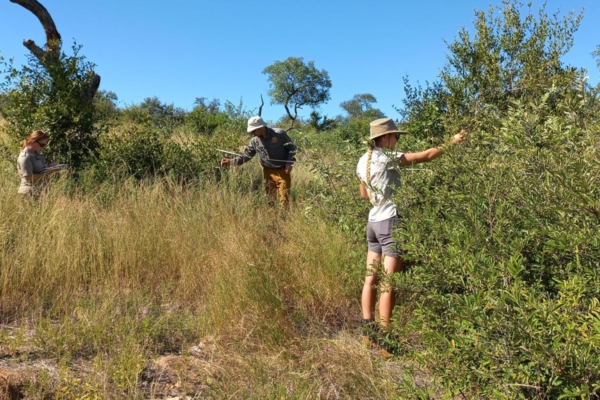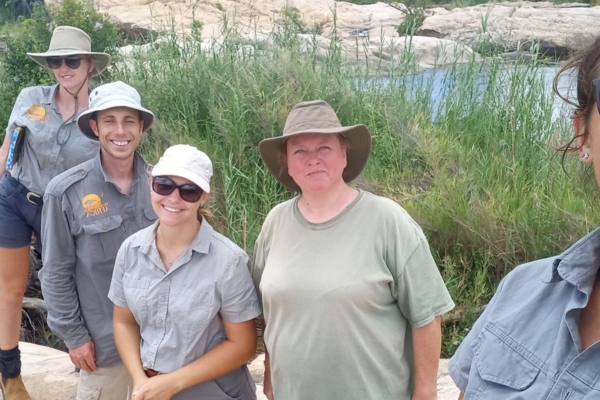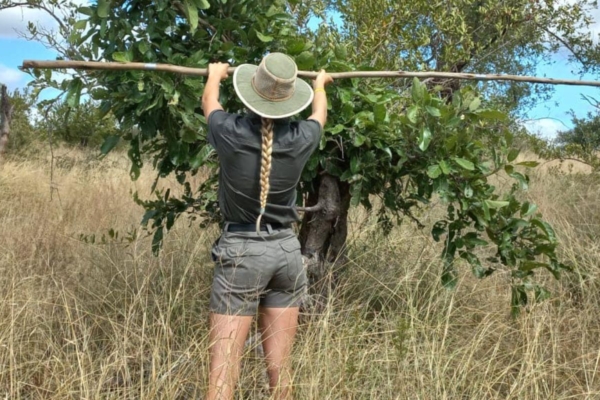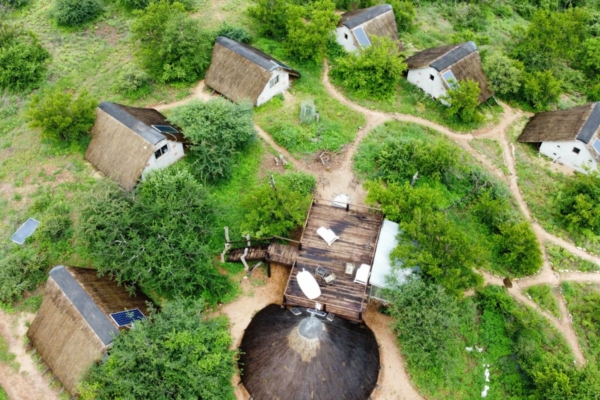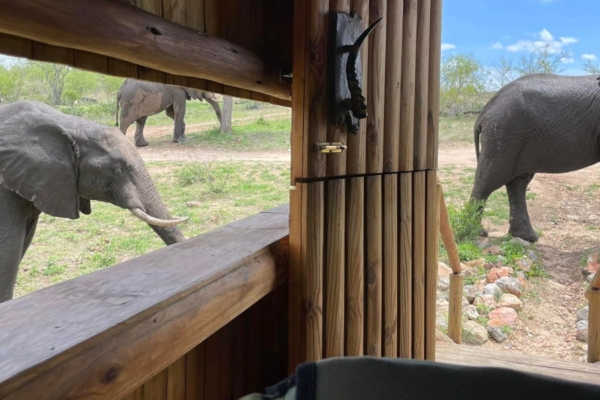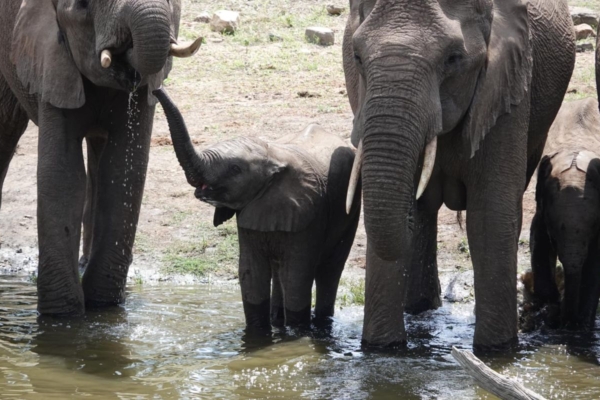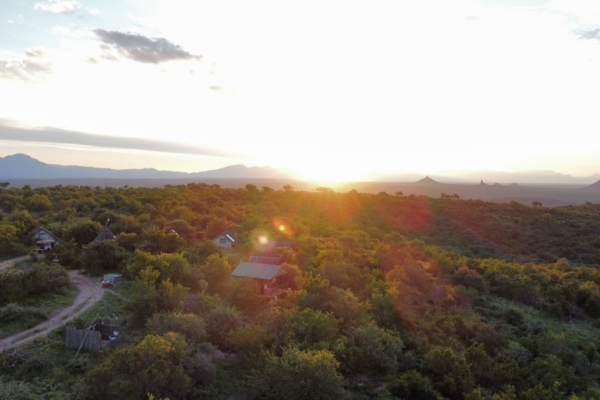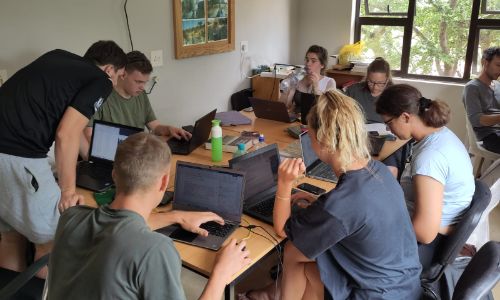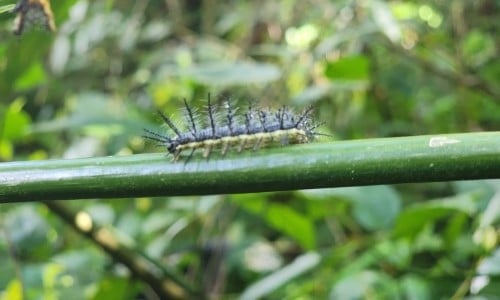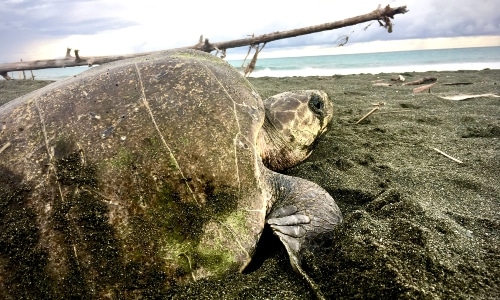Master’s Level Conservation Research Internship in South Africa
PROGRAM OVERVIEW
Travel to the Greater Kruger Park and conduct in-field ecological research on Africa’s most iconic wildlife
This advanced program gives Master’s students of biology, ecology, and conservation science a chance to contribute to vital conservation research in South Africa’s largest wildlife reserve, the Greater Kruger National Park.
You’ll join a research center based in Olifants West Nature Reserve and collaborate with an ecological conservation organization dedicated to supporting reserve management in making informed decisions based on scientific evidence. They have a long, accomplished history of responding to varied ecological crises ranging from poaching to elephant-driven tree mortality.
There are typically multiple projects active at the center at any given time, so the focus of your internship will be decided upon application. These projects could have you monitoring populations of certain species, devising strategies to control invasive plant species, or analyzing data from long-term fixed-point photography. You’ll run your conservation research projects, conduct fieldwork in the African Bush, and contribute meaningfully to conservation science.
Learning Objectives
- Real-world scientific research experience in Ecology
- Practical in-field data collection skills
- Extensive knowledge of ecosystems of South Africa
- Insight into nonprofit wildlife conservation
- Opportunity to publish or use findings toward university thesis
ORGANIZATION
Transfrontier Africa is a long-standing wildlife conservation organization that works from its research facility in the Greater Kruger National Park in South Africa to develop wildlife management practices and strategies. They function as part of a network of wildlife research institutions to devise evidence-based projects to foster successful cohabitation of wildlife and local communities and respond to wildlife conservation crises.
Fueled by their research, the organization collaborates with management teams of wildlife parks and reserves, implements on-the-ground wildlife management and security strategies, and runs community outreach and education programs. With multiple projects on the go at any given time, the organization makes a tangible impact on the conservation of rare species, habitat protection, and anti-poaching efforts.
TASKS & REQUIreMENTS
You’ll play a big role in a small team in this program and will need to work both independently and in collaboration with your team. Your weekly schedule will include fieldwork, team meetings, and lectures on local wildlife. You may also conduct literature reviews, analyze data collected, and write reports – depending on the current need.
Responsibilities
- Fieldwork and data collection
- Data processing and database management
- Conducting literature reviews
- Writing methodologies, reports, and guideline documents
- Performing statistical tests and other kinds of data analysis
- Apply findings to real-world issues within the park and reserve management
- Devise wildlife management and security strategies and implement them
- Produce guideline documents for reserve management and landowners
- Give presentations among team members and possibly stakeholders on the progress and impact of your project
Requirements
- BSc degree and enrolled in a MSc in Ecology, Wildlife Biology, Conservation Science, or a field relevant to your research project
- Strong understanding of ecological principles, statistical analysis, and wildlife management
- Extensive experience conducting literature reviews and writing scientific reports, and an interest in publishing research papers
- Strong written and verbal communication and fluency in the English language
- Proficiency with MS Office, R statistical program, and geographic information system software, with an interest in learning new research methods and tools
- Ability to work independently and as part of a team
We are currently hiring for the following research projects:
Monitoring of Spotted Hyena Crocuta Populations using Spatially Explicit Capture/Recapture Methods
This project seeks to improve the understanding of hyena populations in Olifants West Nature Reserve. The primary goals of the project are to add to the identification database through camera trap surveys and citizen science and use findings to model the demographics of spotted hyenas.
Extra requirements:
- BSc or higher in Ecology, Wildlife Biology, Conservation Science, or a field relevant to your research project
- Able to conduct a literature review mainly on spotted hyena ecology and the use of advanced and appropriate modeling techniques
- Prior experience using Artificial Intelligence software used for individual identification of wildlife species preferred.
Landscape Modeling in the Absence of Prickly Pear Control in South African Savanna
This project seeks to identify spatial patterns in the distribution of the species and priority areas to improve the effectiveness of control methods. The research aims to create predictive modeling of the spatial spread of prickly pear populations, measure the efficacy of control methods, and produce a guideline document for reserve management.
Extra requirements:
- BSc or higher degree in a relevant field, such as Bioinformatics, Computer Science, Biological Data Science, Applied Computing, or a related discipline
- Strong coursework and understanding of modeling principles and statistical analysis.
- Proficiency in using R statistical software program, or similar software, for modeling purposes and ability to identify suitable models in the literature.
Snare Detection of Snares using Radar, Validation, and Verification in the Savanna Biome
This project seeks to utilize airborne Synthetic Aperture Radar (SAR) to scan areas where snares are strategically deployed. The goal is to develop a method for analyzing large volumes of radar data, enabling the accurate identification of snare signatures amidst background noise. The extracted signatures will be used to train an algorithm that enhances data processing efficiency.
Extra requirements:
- BSc or higher degree in a relevant field, such as Bioinformatics, Computer Science, Biological Data Science, Applied Computing, or a related discipline
- A strong background in signal and image processing
- Experience with Fourier transformations
- Familiarity with GIS (Geographic Information System) software, such as QGIS or ArcGIS, for basic spatial analysis and mapping
WHERE YOU’LL STAY
Interns stay at the Nonwane Research Centre in Olifants West Nature Reserve within the Greater Kruger National Park. This center contains a shared house, a communal area, shared kitchens, and bathrooms, and an outdoor protected braai area. Individual rooms are available, each equipped with a personal workspace.
Safety & Support
Safety & Support
The Research Centre is safe from crime, however being an open camp in a Big 5 area, there are wildlife risks to be aware of. For this reason, interns are accompanied by professional security teams protecting the teams from local wildlife threats.
Communication
Communication
Power is available throughout the center but is subject to regular load shedding. Wi-Fi and mobile signals are also available in the center.
Meals
Meals
Interns will prepare their meals in the shared house kitchen. They can plan regular trips to the nearby supermarket and coordinate their meals with other interns in the house.
Location details
Location details
The research center is located in the Olifants West Nature Reserve which forms part of South Africa’s Greater Kruger Park. This is a Big 5 area of the park so you can expect some incredible wildlife sights from the camp. The camp is also open, meaning wildlife is free to roam through. The area’s climate is hot and semi-arid.
DATES & RATES
Fee Breakdown
You can start your internship every week with arrivals on Monday.
What you’ll pay (2025 rates)
3 months USD 3,472
4 months USD 4,313
6 months USD 5,995
8 months USD 7,677
10 months USD 9,359
12 months USD 11,040
Inclusions
- Careful matchmaking. It takes time to find the right internship for each person, and we take this process very seriously.
- Initial interview with one of our team to gauge your skills, interests, and desired learning outcomes.
- An academic internship eligible for university credit. Check with your university to confirm if this internship qualifies for credit or alternatively we can assist you with purchasing transfer credits.
- Accommodation in a shared chalet
- Airport transfers upon arrival and departure from Hoedspruit Airport
- Daily meals (breakfast, lunch, dinner, and snacks during field work)
- Wifi access
- All project transport
- Participation in daily reserve management activities and research projects
- Monday town trips to Hoedspruit
- Official program T-shirt
- Assistance with your visa arrangement and other preparations
- An orientation program with your supervisor
- Supervision and support during your stay
- Regular check-ins during your internship with your supervisor
- Troubleshooting if needed
- A reference letter at the end of your internship
Exclusions
- Flights (or shuttle bus from Johannesburg Airport) to Hoedspruit Airport
- Visa and medical/travel insurance costs for the duration of your placement – must include cover for repatriation
- Meals during weekend outings/excursions
- Drinks, snacks, and items of personal nature (f.e. curios, gifts, clothing)
- Costs for additional excursions or activities
GALLERY
FAQs
Some of our most commonly asked questions for programs in South Africa.
What can I expect from a NGO internship in South Africa?
During your internship in South Africa you can expect to meet people from around the world, as well as indulging yourself into the culture of this beautiful country! If you want to know more about what to expect, make sure to check out our top 7 reasons for an internship in Cape Town.
Will I have time to explore South Africa during my internship?
Yes! We partner with various activity organizers that can offer discounts exclusive to Roots Interns, for example, a road trip through the Garden Route and bungee jumping off the world’s largest natural bungee. You may also explore the country on your own and we are happy to give recommendations.
Am I able to do an internship while on a study program in Cape Town?
Yes! You are able to do a part-time internship with certain organizations so that you can continue your studies, while also gaining valuable work experience.
Will I receive a stipend of any kind during my internship with Roots?
Unfortunately, no. When working with a nonprofit organization, your internship will be unpaid, but there are many ways to fund your internship. Your experience will bring a wealth of knowledge and opportunities for both professional and personal growth that are invaluable!
QUICK FACTS
HIGHLIGHTS
- Gain international conservation experience in the nonprofit sector
- Independently run scientific research projects
- Develop extensive knowledge of South African wildlife and ecosystems
- Work on innovative, impact-driven wildlife and ecology research projects
- Live and work in the Greater Kruger National Park
HOW TO APPLY
If you’re ready to apply for this internship, here’s what to do:
APPLY
Fill in the application form (it will show in a new screen) which includes sharing your CV to us.
SPEAK WITH AN ADVISOR
We’ll set up a call with you to go through your application.
INTERNSHIP MATCHING
If we feel it’s a good match, we’ll set up a call between you and the supervisor for this internship.
PAYMENT
If everyone’s happy, we’ll provisionally confirm your placement! We’ll then send you the invoice for the deposit, getting started with the booking process and all the info you need.
CONFIRMATION
Only once we receive payment of the deposit your placement will be confirmed.
NEED TO MAKE AN ENQUIRY FIRST?
Or if you’d just like to ask us some questions about this internship first, just fill in the contact form below. We’ll be happy to assist!
"*" indicates required fields
RELATED PROGRAMS
Master’s Level Conservation Research Internship
- Min. 3 months
- Greater Kruger, South Africa
- Ecological Research, Wildlife Conservation, Data Projects
Wildlife Conservation Program
- Min. 3 weeks
- Recinto La Esperie, Ecuador
- Research, Education, Conservation
Sea Turtle Conservation Internship
- Min. 6 weeks
- Carate, Costa Rica
- Data Collection, Marine Conservation, Education, Research
RELATED BLOGS
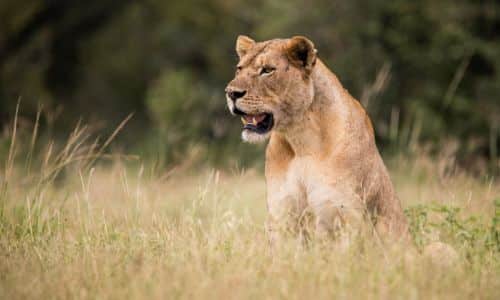 11 Best Wildlife Conservation Projects
11 Best Wildlife Conservation Projects
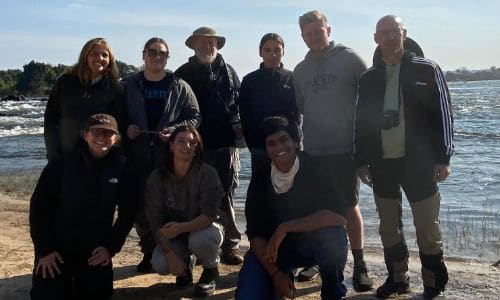 Lessons Learned during a Wildlife Conservation Internship
Lessons Learned during a Wildlife Conservation Internship
Lessons Learned during a Wildlife Conservation Internship
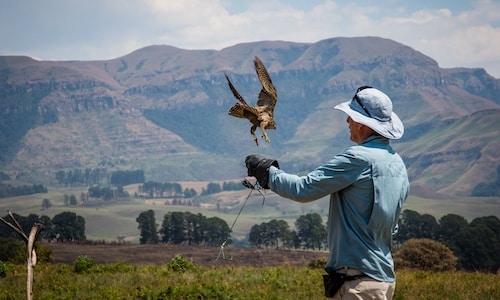 How to Get Wildlife Conservation Internships Abroad
How to Get Wildlife Conservation Internships Abroad

